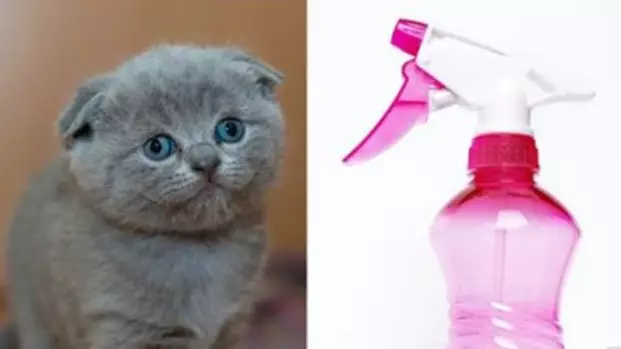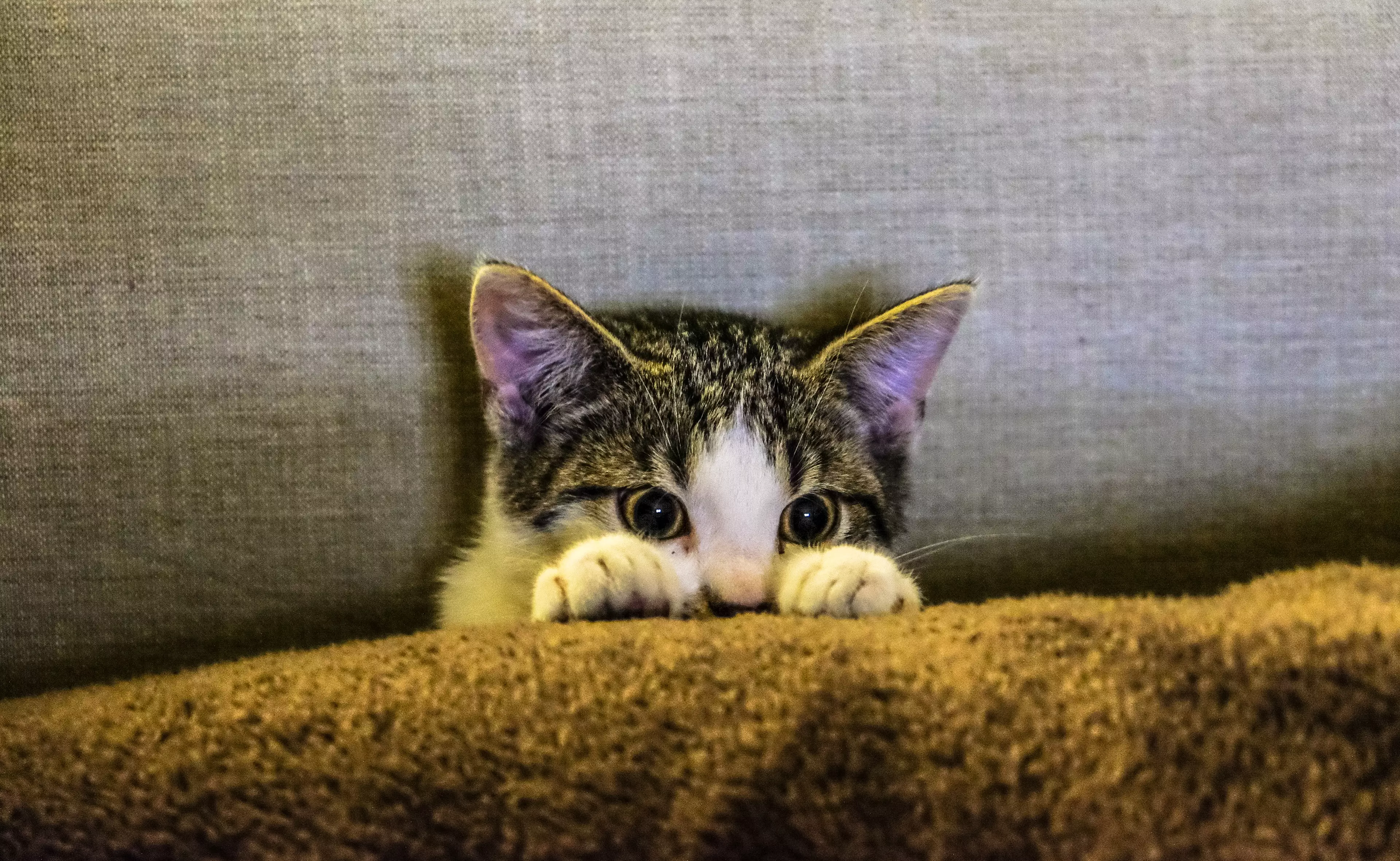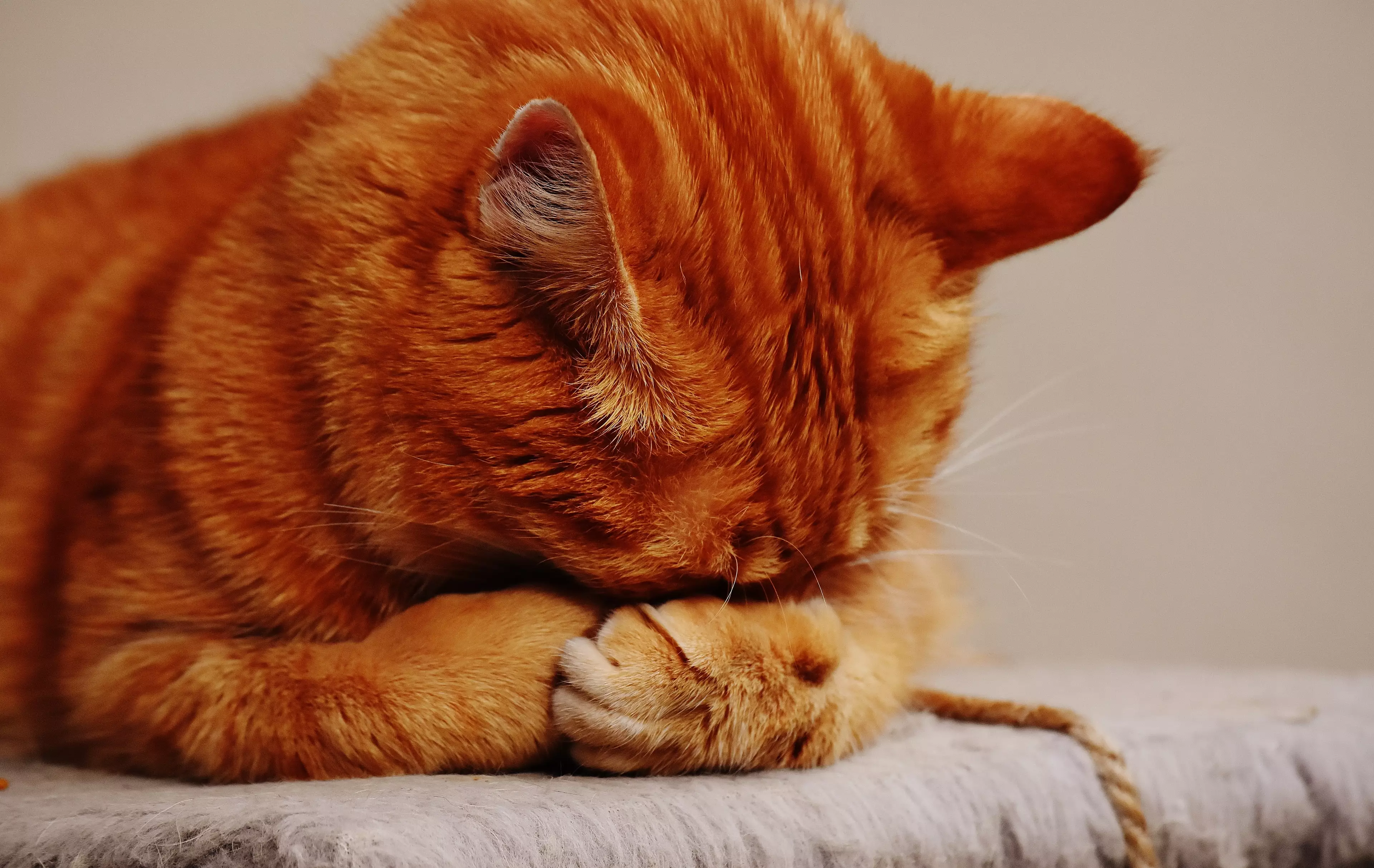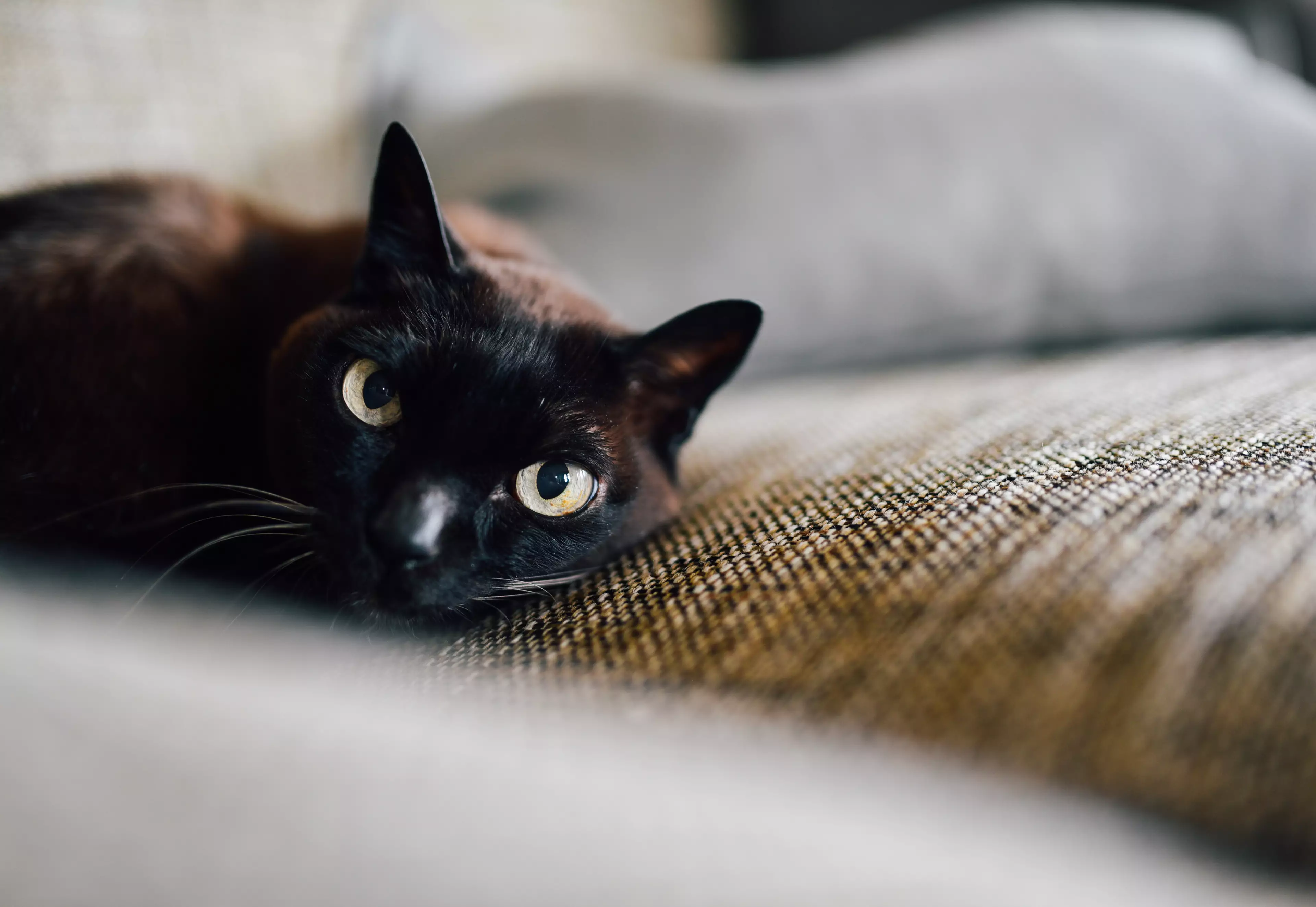
If your cat seems to be losing weight and acting more nervous than usual it could be down to an unlikely source: your air freshener.
Most won't know, but this normal household item contains chemicals which can cause an overactive thyroid in cats, which lead to these symptoms.
After humans, this condition is most common in cats, and occurs when the thyroid gland in the neck produces excess hormones. It can cause cats to be restless and constantly hungry, despite being a lot thinner than their peers.

A new study has now found a link between the hormone condition and household goods, such as air fresheners, which contain flame retardants for the first time.
Advert
The groundbreaking study, conducted by Professor Kim Anderson of Oregon State University, said older cats are especially prone to hyperthyroidism.
Over time, chemicals known as 'endocrine disruptors' (because they interfere with hormones) seep out of the furniture into the air, settling on the bodies of household cats.
Prof Anderson said: "Feline hyperthyroidism is the most commonly diagnosed endocrine-related disease among senior and geriatric house cats, but the causes remain unknown.
"Exposure to endocrine-disrupting compounds with thyroid targets, such as flame retardants, may contribute to disease development."

To test this, Prof Anderson's team recruited 78 cats seven years and older - half healthy, half with hyperthyroidism - and made them wear pet tags containing silicone, which picks up on harmful chemicals in the air.
Advert
After seven days, the tags found higher levels of TDCIPP (the harmful chemical focused on) from those cats with hyperthyroidism.
Of the healthy cats, TDCIPP exposure also correlated with blood levels of one of the hormones elevated in hyperthyroidism.
Higher TDCIPP exposures in those tested were associated with air freshener use, houses built since 2005 and cats that prefer to nap on upholstered furniture.

Scientists have recently suspected a link between hyperthyroidism in cats and household flame retardants, as the numbers of cats with the hormone illness rocketed in 1979, the same year retardants were introduced.
Advert
Prof Anderson said the study, published in Environmental Science & Technology, "provides proof-of-concept data for the use of silicone pet tags with companion animals and further indicates that bioavailable TDCIPP exposures are associated with feline hyperthyroidism."
The best treatment for an overactive thyroid in cats is an injection of radioactive iodine, which kills the problem cells.
For more information or advice on treatment, it's best to visit your vets.
Featured Image Credit: Pexels